post-truth

This article explores the concept of truthiness, introduced by Stephen Colbert, and its implications in today’s discourse, where subjective truths often overshadow objective reality. It discusses the dangers of absolute certainty in beliefs, exemplified by a Young Earth creationist. Through Bayesian reasoning, it suggests adjusting beliefs based on evidence and introduces a model called Bayesian Balance, which helps in evaluating evidence without succumbing to absolute certainty.
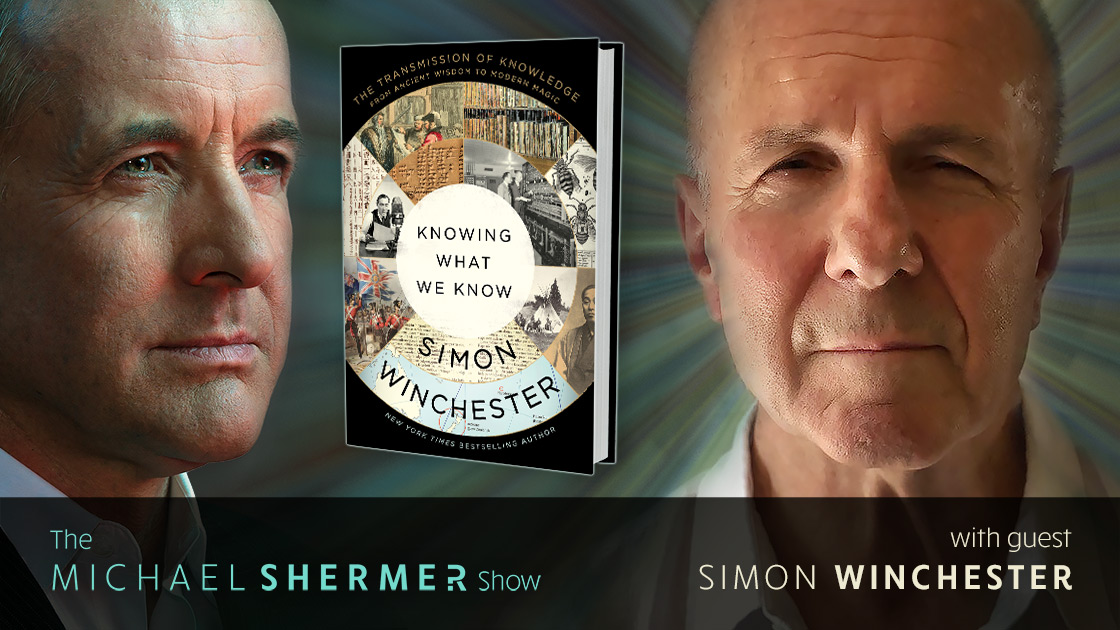
Shermer and Winchester discuss: how to become a professional writer • ChatGPT, GPT-4, and AI • knowledge as justified true belief • What is truth? • Are we living in a post-truth world of fake news and alternative facts? • education, past and present • books and the printing press • the history and future of encyclopedias • museums: repatriating objects taken during colonialism • print and broadcast journalism • internet and knowledge.

In our “post-truth” world, objective facts are less influential in shaping public opinion than appeals to emotion and personal belief. In the U.S., citizens’ trust in their government is at historically low levels, and the trust gap is difficult to bridge because individuals who practice deceptive behaviors often gain. This type of situation is known as a “tragedy of the commons.” Behavioral scientist Gleb Tsipursky offers the Pro-Truth Pledge (PTP) as one solution to help rebuild trust in and decrease…
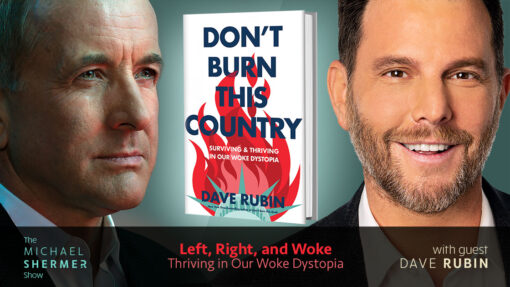
Michael Shermer speaks with Dave Rubin: New York Times bestselling author, and creator and host of The Rubin Report. They discuss his book Don’t Burn This Country: Surviving and Thriving in Our Woke Dystopia.
Michael Shermer speaks with Dave Rubin: New York Times bestselling author, and creator and host of The Rubin Report. They discuss his book Don’t Burn This Country: Surviving and Thriving in Our Woke Dystopia.
In episode 211, Michael Shermer speaks with Ashley Rindsberg about his book The Gray Lady Winked in which he pulls back the curtain to reveal an eye-opening, often shocking, look at the New York Times’s greatest journalistic failures, so devastating they changed the course of history.
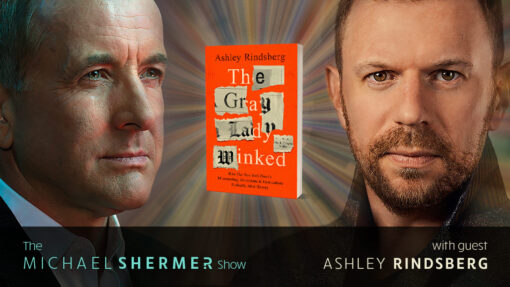
In episode 211, Michael Shermer speaks with Ashley Rindsberg about his book The Gray Lady Winked in which he pulls back the curtain to reveal an eye-opening, often shocking, look at the New York Times’s greatest journalistic failures, so devastating they changed the course of history.
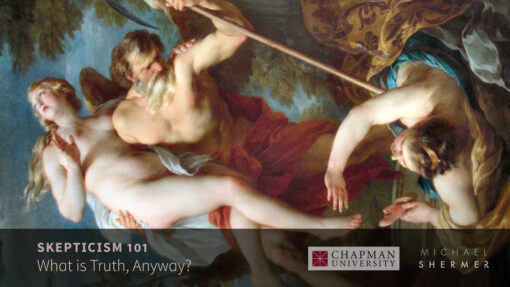
In this lecture Dr. Michael Shermer addresses one of the deepest questions of all: what is truth? How do we know what is true, untrue, or uncertain?
In a lecture, Dr. Michael Shermer addresses one of the deepest questions of all: what is truth? Following that, Lee McIntyre and Michael Shermer debate whether we are living in a Post-Truth era of fake news and alternative facts.

Is post-truth the political subordination of reality? Is truth itself any more under threat today that in the past? Have the populists & postmodernists won the day? In response to Dr. Lee McIntyre’s essay, Dr. Michael Shermer asserts that people are not nearly as gullible as some believe.

Are we living in a Post-Truth era of fake news and alternative facts? Dr. Lee McIntyre avers that we must take seriously the threat to truth posed both by those who would subvert the truth for political gain, and also by those who would deny that such a threat actually exists.
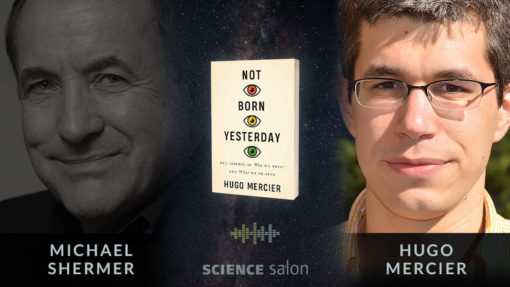
Not Born Yesterday explains how we decide who we can trust and what we should believe — and argues that we’re pretty good at making these decisions. Hugo Mercier demonstrates how virtually all attempts at mass persuasion — whether by religious leaders, politicians, or advertisers — fail miserably.
In Science Salon # 101 Michael Shermer speaks with Hugo Mercier about his new book: Not Born Yesterday: The Science of Who We Trust and What We Believe.
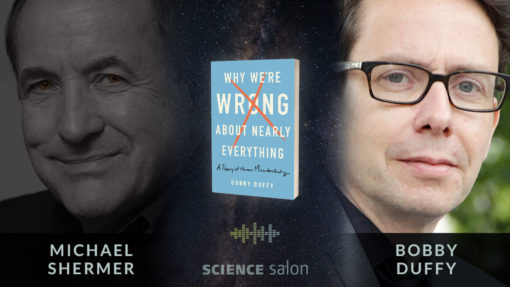
In Science Salon # 99 Michael Shermer speaks with Bobby Duffy about his research into public perception across more than 40 countries, offering a sweeping account of the stubborn problem of human delusion: how society breeds it, why it will never go away, and what our misperceptions say about what we really believe.
In Science Salon # 99 Michael Shermer speaks with Bobby Duffy about his research into public perception across more than 40 countries, offering a sweeping account of the stubborn problem of human delusion: how society breeds it, why it will never go away, and what our misperceptions say about what we really believe. PLUS: Harriet Hall, M.D. examines the evidence and the arguments for and against water fluoridation to see what holds up to scrutiny.
In Science Salon # 98 Michael Shermer speaks with Robert Pennock about his new book An Instinct for Truth: Curiosity and the Moral Character of Science. Taking a virtue-theoretic perspective, Pennock explores curiosity, veracity, skepticism, humility to evidence, and other scientific virtues and vices. PLUS, Sociologist and Certified Sex Therapist Marty Klein, Ph.D. reviews Estrogen Matters: Why Taking Hormones in Menopause Can Improve Women’s Well-Being and Lengthen Their Lives — Without Raising the Risk of Breast Cancer by Avrum Bluming,…
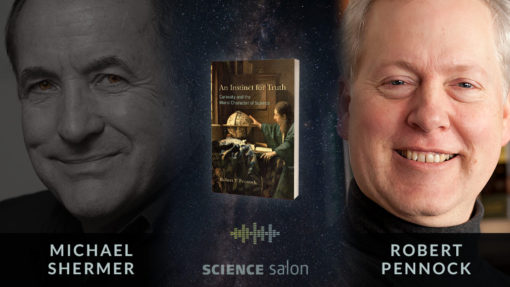
In Science Salon # 98 Michael Shermer speaks with Robert Pennock about his new book An Instinct for Truth: Curiosity and the Moral Character of Science. Taking a virtue-theoretic perspective, Pennock explores curiosity, veracity, skepticism, humility to evidence, and other scientific virtues and vices.
In Science Salon # 89 Michael Shermer speaks with Richard Dawkins about his new book Outgrowing God. Dawkins explains how the natural world arose without a designer and challenges head-on some of the most basic assumptions made by the world’s religions. PLUS: Is the statement “We are living in a post-truth world” true? If your answer is “yes” then the answer is “no” because you’ve just evaluated the statement in an evidentiary manner, so evidence still matters and facts still…

Is the statement “We are living in a post-truth world” true? If your answer is “yes” then the answer is “no” because you’ve just evaluated the statement in an evidentiary manner, so evidence still matters and facts still matter. Harvard psychologist Steven Pinker explains why were are not living in a post-truth world in this deeply insightful cover story from Skeptic magazine 24.3 (2019).
In Science Salon # 79 Michael Shermer speaks with former dean of Yale Law School Anthony Kronman about his new book The Assault on American Excellence; PLUS psychologist John Glynn explores one of the most perplexing aspects of human behavior: why does anyone die by suicide?
NEXT →




















